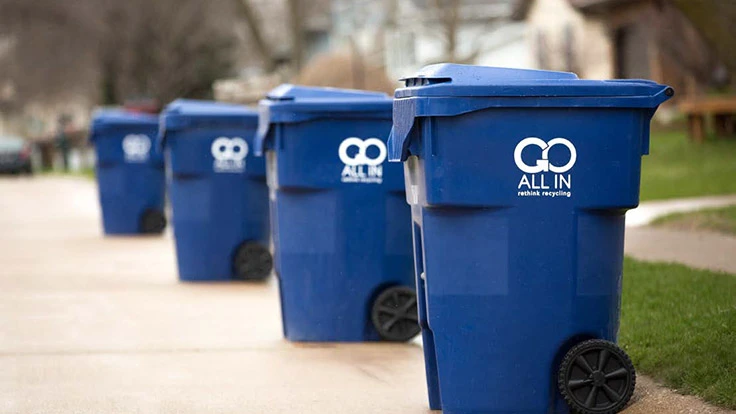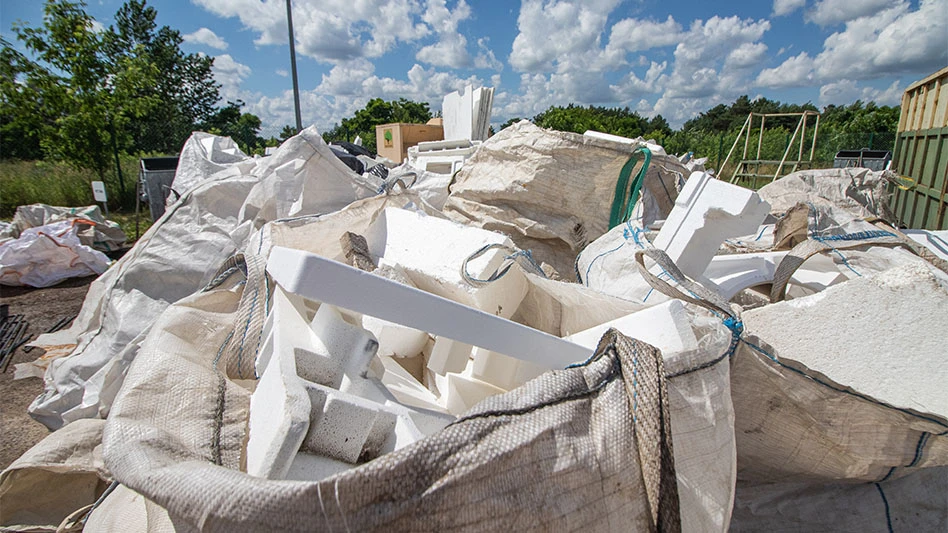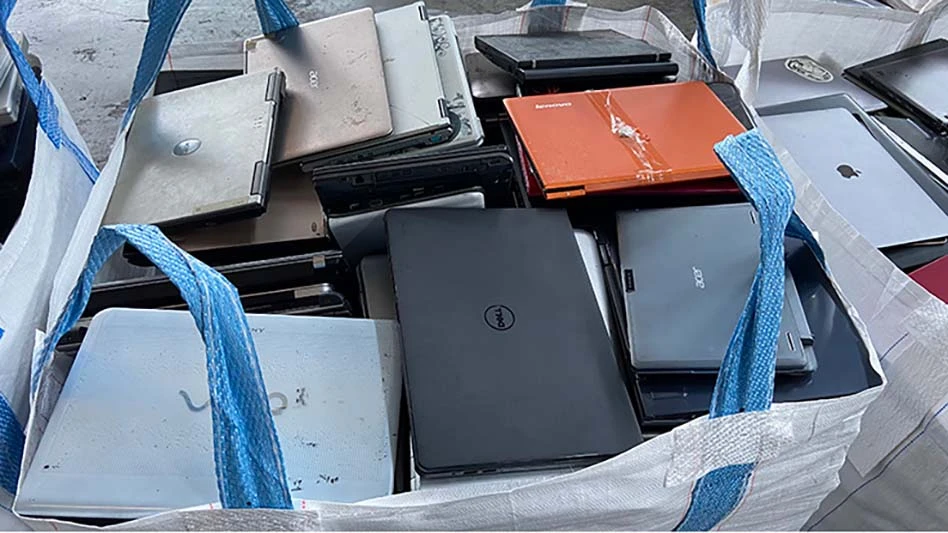
According to a news release from the Closed Loop Fund, the organization’s partners have seen more than $100,000 in new savings and revenue, while one partner, Scott County, Iowa, has seen a 61 percent increase in recycling.
The recycling increase came from surprising places in Scott County, the Closed Loop Fund says, in the first year after the social impact fund and the county invested $10.75 million in new recycling infrastructure, including recycling carts and a newly upgraded county-owned-and-operated material recovery facility (MRF).
The Scott County Waste Commission had expected to see a sizable lift in volumes of recyclables coming into its MRF because of the new full-size recycling carts that were deployed in the Iowa cities of Davenport and Bettendorf. However, the commission was surprised by how much new material is coming from nearby communities, indicating that the Quad Cities region had previously been underserved with no nearby single-stream MRF, the Closed Loop Fund says. Now materials that used to travel much longer distances are coming in from 60 to100 miles away.
Serving the Quad Cities community, including Davenport and Bettendorf, the Scott County Waste Commission operates a multifaceted facility, including its recycling center, e-waste center, MRF and landfill. The commission also is the local Keep America Beautify (KAB) affiliate and leads community-wide education efforts about recycling.
Scott County Waste Commission Director Kathy Morris says, “We’ve very pleased with the program results so far. Davenport and Bettendorf are recycling more, and we’re able to serve additional communities.”
According to the Closed Loop Fund, it learned a number of lessons from working with the Scott County Waste Commission:
- Best practices in education campaign effectiveness – The commission invested in a robust education and promotion plan for the launch and roll-out of the new recycling program. Data from a public perception survey was used to inform messaging and outlets. The commission also made strategic use of funding and ambassadors in the community to get the message out. The communitywide, multiplatform campaign included resources and tools from The Recycling Partnership, a national nonprofit based in Falls Church, Virginia, and executed by a local public relations firm. Since the initial launch, the commission has dedicated attention to follow-through to ensure education efforts have long-lasting effects.
- Deciding to continue MRF operations – When the Scott Area Recycling Center’s aging recycling equipment needed to be replaced, the Scott County Waste Commission and its intergovernmental partners, the cities of Davenport and Bettendorf, pursued the change from dual- to single-stream recycling by evaluating three options: own and operate the MRF, send materials to a privately owned MRF or outsource operations to a private entity. Bucking the trend among municipality-owned MRFs today, this analysis concluded that the best option was for the commission to own and operate an upgraded recycling center and to increase inbound volumes by marketing to more nearby municipalities.
The Closed Loop Fund case study on Scott County, available at www.closedlooppartners.com/case-scott-county, includes tools to help others adopt Scott County’s best practices. It also highlights other factors contributing to Scott County’s success that can help others implement a successful program:
- aligned public officials who were committed to a transition to single-stream recycling and to increasing diversion;
- vertically integrated operations, which means the waste commission coordinates closely with municipalities on collections and markets commodities, realizing more value;
- solutions for a wide range of accepted materials, which allows the commission to find the right home for materials coming into the MRF; and
- sufficient volumes in the county and from the nearby region.
For more case studies or to learn how to apply for funding, visit www.closedlooppartners.com.
The Closed Loop Fund brings together the world’s largest consumer product, retail and financial companies committed to finding a national solution to divert waste from landfills into the recycling stream to be used in the manufacturing supply chain. Key supporters include 3M, Coca-Cola, Colgate-Palmolive, Dr. Pepper Snapple Group, Goldman Sachs, Johnson & Johnson Family of Consumer Cos., Keurig Green Mountain, PepsiCo and the PepsiCo Foundation, Procter & Gamble, Unilever and the Walmart Foundation. For more information, visit www.closedlooppartners.com.
Latest from Recycling Today
- NWRA, SWANA partner to address lithium-ion batteries
- Corinth, Texas, renews waste contract with CWD
- Fresh Perspective: Sarah Zwilsky
- Plastics Industry Association announces leadership changes
- QCC celebrates 50th anniversary
- Venture Metals acquires 2 nonferrous processors
- Nucor could be part of Cliffs’ next US Steel bid, reports say
- Recycled steel values rise in US





